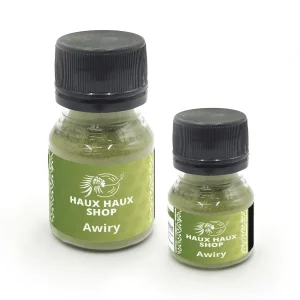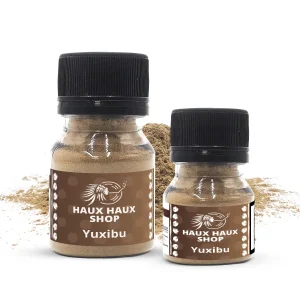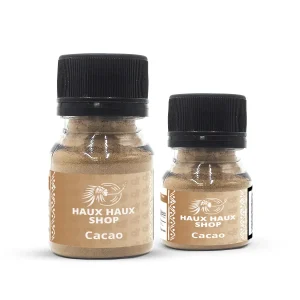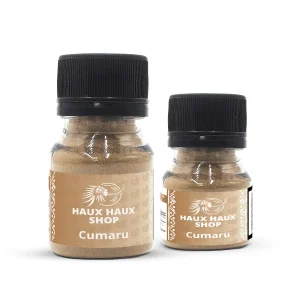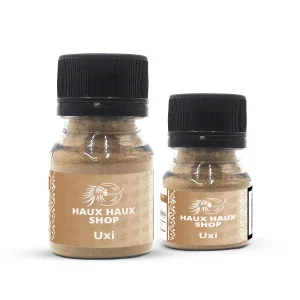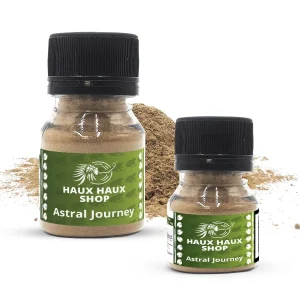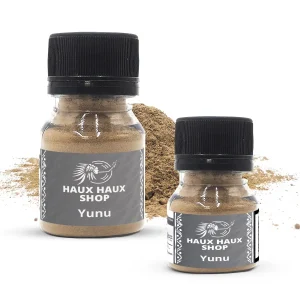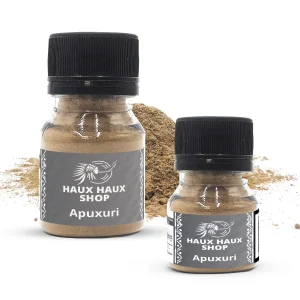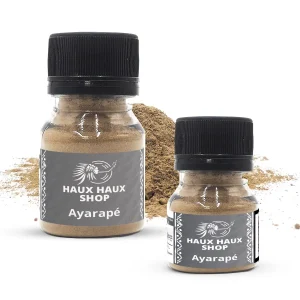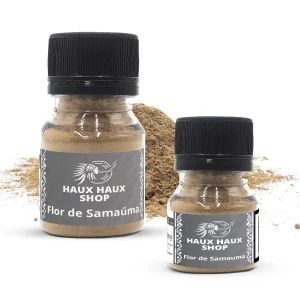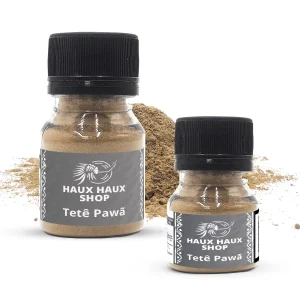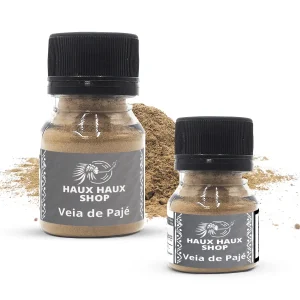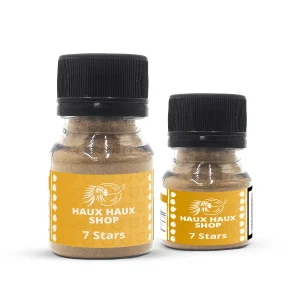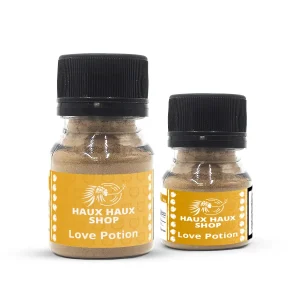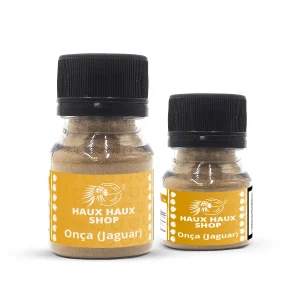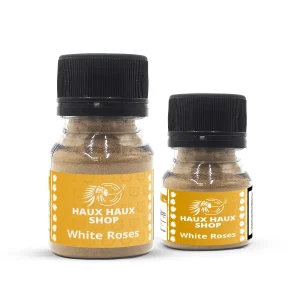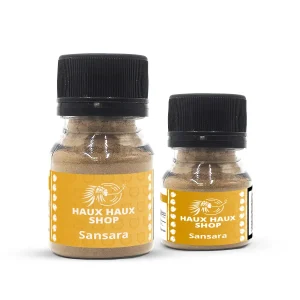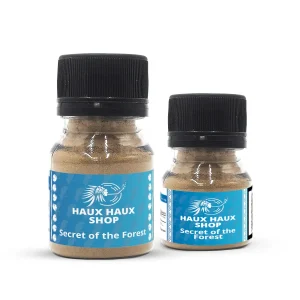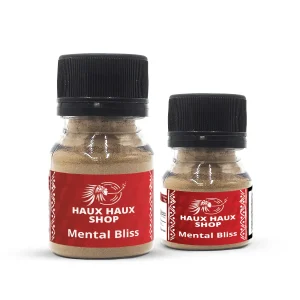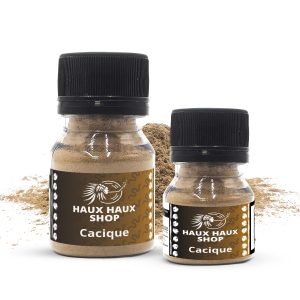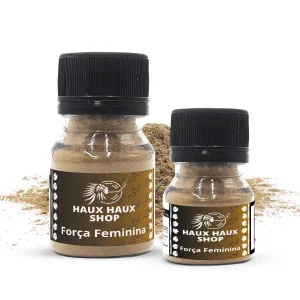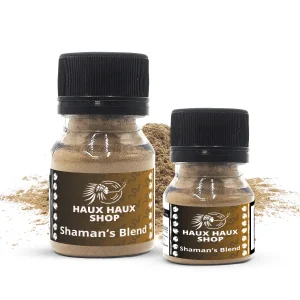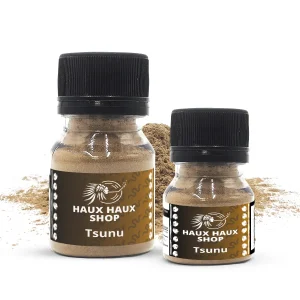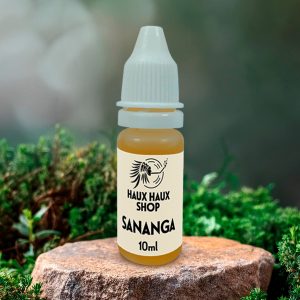Showing all 28 results
Showing all 28 results
What Is Rapé?
Rapé (pronounced “ha-peh,” also spelled hapé or rapeh) is a traditional Amazonian snuff used ceremonially by indigenous tribes for thousands of years. This sacred rapé snuff is made from finely ground Nicotiana rustica (mapacho tobacco) combined with sacred plant ashes, seeds, and other botanicals sourced from the rainforest.
Unlike commercial tobacco products, traditional rapé is administered through the nostrils using specialized applicators. It is never smoked. The practice is deeply spiritual, designed to cleanse energy, sharpen focus, ground the mind, and facilitate connection with ancestral wisdom and the natural world.
What Is Rapé Snuff Made From?
Rapé snuff contains two primary components: Nicotiana rustica (a potent tobacco native to the Amazon) and ashes from sacred trees and plants. Each indigenous tribe has unique recipes that reflect their spiritual traditions and relationship with the forest.
Common ash ingredients include Tsunu bark, Cumaru seeds, Murici leaves, Mulateiro bark, Cacao, Samauma flowers, and Paricá seeds. These botanicals are carefully harvested, burned to ash, sieved to fine powder, and combined with tobacco in specific ratios. The preparation process involves prayer, intention, and traditional knowledge, transforming raw materials into sacred medicine.
What Is Rapé Traditionally Used For?
In indigenous Amazonian traditions, rapé serves multiple ceremonial and spiritual purposes. Tribes, including the Yawanawá, Huni Kuin, Kuntanawa, Nukini, Apurinã, Shawãdawa, and Caboclo, use rapé for:
Ceremonial preparation: Rapé is used before ayahuasca ceremonies, healing rituals, and sacred gatherings to center participants and create energetic alignment.
Grounding and presence: The practice brings immediate awareness to breath and body, anchoring practitioners in the present moment and quieting mental chatter.
Energetic cleansing: Traditional use focuses on clearing stagnant or heavy energy from the body’s channels, particularly around the head and heart.
Spiritual connection: Rapé facilitates deeper meditation, prayer, and communion with plant spirits, ancestors, and the forest itself.
Community bonding: Sharing rapé using a tepi applicator creates sacred exchange between giver and receiver, strengthening tribal and ceremonial bonds.
For comprehensive cultural context and traditional practices, read our guide: What is Rapé?
Explore Rapé by Tradition / Blend
When you buy rapé, understanding the different tribal traditions and blend characteristics helps you choose medicine aligned with your intention and experience level.
Tribe-Specific Rapé
Yawanawá Rapé: Known for balanced, grounding blends. Tsunu-based recipes are prized for mental clarity and focus. Força Feminina carries feminine energy and heart-opening qualities.
Huni Kuin Rapé: Often features Cacao for heart-centered work and Cumaru for energetic cleansing. These blends tend toward sweetness in aroma and gentle yet profound effects.
Kuntanawa Rapé: Diverse recipes including Ayarapé for meditation, Veia de Pajé for shamanic work, and Flor de Samauma for connecting with the sacred Samauma tree spirit.
Nukini Rapé: Features potent blends like Onça (Jaguar) for strength and courage, 7 Stars for spiritual alignment, and White Rose for heart opening and emotional balance.
Apurinã Rapé: Known for gentler, more accessible blends. Awiry is particularly suitable for those new to the practice.
Shawãdawa Rapé: Spiritual blends designed for deep ceremonial work and connection with higher consciousness.
Caboclo Rapéh: Mixed-heritage traditions featuring unique recipes like Yuxibu for pineal activation and Paricá for visionary experiences.
Beginner-Friendly Selection Tips
If you’re new to rapé, consider these factors when choosing your first blend:
Start gently: Apurinã Awiry, lighter Yawanawá blends, or Huni Kuin Cacao offer accessible introductions without overwhelming intensity.
Consider aroma: Some blends have sweet, earthy aromas (Cacao, Cumaru) while others are more pungent and medicinal. Choose what appeals to your senses.
Set clear intention: Select based on your ceremonial purpose: grounding (Tsunu), cleansing (Cumaru, Murici), heart-opening (Mulateiro, Cacao), or spiritual connection (Ayarapé, Spiritual blends).
Respect potency: Traditional rapé is powerful medicine. Begin with small amounts and work with experienced practitioners when possible.
Tools to Use with Rapé
Rapé requires a proper applicator tool for administration. The two traditional options are:
Kuripe: A V-shaped self-application tool for personal practice. You place one end in your nostril and blow through the other end, allowing solo ceremonial use. Ideal for daily spiritual practice, meditation, and building an autonomous relationship with the medicine.
Tepi: A straight rapé applicator used by one person to administer snuff to another. This partner-based method creates sacred energetic exchange and is traditional in group ceremonies, shamanic sessions, and facilitated healing work.
Many practitioners maintain both, using the kuripe for personal practice and the tepi for ceremonial gatherings. Choose based on your practice context and whether you work solo or with a community.
Storage & Freshness
Proper storage ensures your rapé maintains potency, aroma, and ceremonial integrity:
Shelf life: Well-stored rapé can last 12-24 months or longer. Freshness depends on storage conditions and the blend’s specific ingredients.
Storage basics: Keep rapé in an airtight container (glass jars work best) in a cool, dry place away from direct sunlight, heat, and moisture. Avoid bathrooms or anywhere with humidity fluctuations.
Signs of freshness: Fresh rapé has a vibrant aroma, fine texture, and maintains its energetic presence. If the medicine becomes clumped, loses scent, or develops mold, it should be discarded.
Respect the medicine: Store your rapé with the same reverence given during preparation. Some practitioners keep their medicine on an altar or in a dedicated ceremonial space.
Frequently Asked Questions
What is rapé?
Rapé is a traditional Amazonian snuff made from Nicotiana rustica tobacco and sacred plant ashes. Indigenous tribes use it ceremonially for grounding, energetic cleansing, and spiritual connection.
What is rapé used for traditionally?
Indigenous tribes use rapé for ceremonial preparation, grounding, energetic cleansing, spiritual connection, and community bonding. It’s administered before healing rituals and sacred gatherings to center participants.
What is rapé snuff?
Rapé snuff is the same as rapé: a sacred Amazonian medicine administered through the nostrils. “Snuff” simply describes the powdered form and nasal administration method.
Is rapé the same as hapé?
Yes, rapé and hapé are the same. The spelling varies by transliteration and regional use. “Rapeh” is also used. All refer to traditional Amazonian sacred snuff.
How do I choose a rapé blend?
Choose based on intention: Tsunu for grounding/focus, Cumaru or Murici for cleansing, Mulateiro or Cacao for heart-opening work. Beginners should start with gentler blends like Apurinã Awiry.
What’s the difference between tribe rapé varieties?
Each tribe uses unique ash ingredients, ratios, and prayers that reflect their spiritual traditions. This creates distinct aromas, strengths, and energetic qualities across tribal blends.
Do I need a kuripe or a tepi?
A kuripe is for self-application in solo practice. A tepi requires a partner and is used in ceremonies. Many practitioners eventually have both for different contexts.
How long does rapé last?
Effects typically peak within 5-30 minutes. Subtle after-effects like clarity and calm can continue for hours. Shelf life for stored rapé is 12-24+ months when properly kept.
How should rapé be stored?
Store in an airtight glass container in a cool, dry place away from sunlight and moisture. Proper storage preserves aroma, potency, and ceremonial integrity for extended periods.

